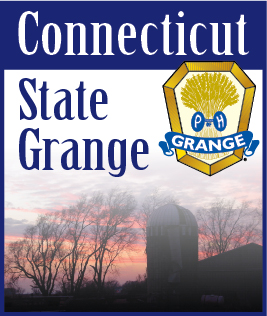| January 7, 2017 -- Happy New Year to all.
A few months ago I wrote about growing concerns on the use of prime forestland and farmland for solar farms. We did have a couple of resolutions that were sent to the State Grange Session concerning solar farming. One concerned the continuation of the federal and state subsidies for home and businesses to install solar panels. The second one promoted the use of non-arable land owned by state and federal governments for the production of solar energy to be used to offset the cost of electricity for state and federal agencies. Both of these resolutions were sent to National Grange. The first resolution concerning the continuation of subsidies was adopted by the national delegates but the second resolution was withdrawn. The wording of it was too open and could lead to many misinterpretations of what our intent was. The thought was there, but not clear enough for the delegates.
Since then, there has been a state environmental watchdog group looking into possible actions that would protect our forest and farmlands. This group is suggesting possible legislative adjustments to the laws governing solar installations. They are encouraging the use of more rooftops, retired shopping malls, old landfills and old industrial sites for these solar arrays. This is somewhat what our second resolution was trying to achieve. Apparently the way the present regulations are worded encourages the use of farmland and forests for the development of solar facilities.
Presently 1,115 acres of woodlands and 510 acres of farmland have been approved for the consideration of solar projects. This is a larger threat than the commercial and residential building on forest and farmland. Currently both the Department of Energy and Environmental Protections and the siting council are responsible for approving sites for these solar projects. It is being recommended that the impact on forest and farmland be considered when approving these sites. It is also recommended that there may be some benefits to waiving some of the clean-up recommendations on specific instances so that more ‘brownfield sites’ can be used for renewable energy sites.
Renewable energy sources such as solar and wind is the right direction for clean energy initiatives but it must be balanced with the importance of our forests and farmlands.
Source: Information for the column was obtained from “Concern Over Alternative Energy” by Gregory Hladky, Hartford Courant, Tuesday, Dec. 13, 2016. |
